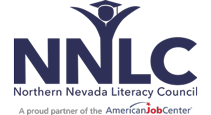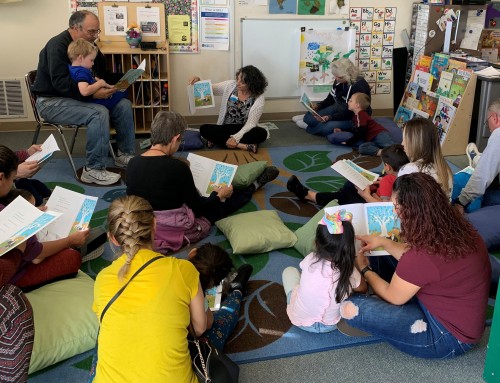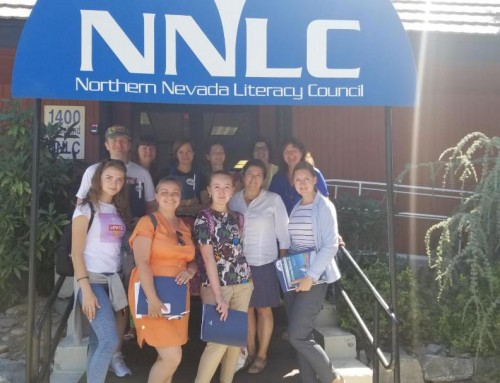
Workers feel driven to boost English-language skills
Hardworking but under-educated workers in northern Nevada may have trouble reading much of anything in English — but they can read the writing on the wall.
As even entry-level jobs increasingly demand a higher level of education, students are flocking to the offices of the Northern Nevada Literacy Council to boost their skills with English or complete a high-school equivalency program.
The nonprofit worked with 678 students in the fiscal year that ended June 30, up by more than 30 percent from a year earlier.
Susan Robinson, executive director of the Literacy Council, says much of the growth is driven by workers who either have been told by their employers or figured out for themselves that the job market is passing them by.
From mid-morning through the evening hours, the nonprofit’s classrooms near the corner of Sutro Street and Oddie Boulevard in northeast Reno are filled.
More than half the Literacy Council’s students are employed.
“Our students are working in hard, physical jobs,” says Robin- son. “They do that for eight or 10 hours, then they come here for two and half hours more.”
Some students, in fact, already own small businesses or are work- ing to get one open.
The Literacy Council’s pitch
is straightforward: Folks who complete the free classes increase
their chance to earn more money and have more career opportunities. A growing number of students who finish its classes, for instance, are finding work in customer-service positions in which bilingual skills are highly sought.
In fact, the English-language and high school equivalency courses have fired the ambitions of many Literacy Council students — about 15 percent of the total at last count – who decide to pursue further education through community colleges and the like.
Mike Kazmierski, president and chief executive officer of the Economic Development Authority of Western Nevada, says improvement of literacy among workers is becoming a larger issue.
“The Northern Nevada Literacy
Council is an important community resource, especially as the unemployment rate declines and qualified workers are more difficult to find,” the EDAWN chief says. “It provides unique and valuable services to adults who are looking to enter or re-enter the workforce or enhance their skill set in order to improve their position within their existing work environment.”
Some employers, seeing the value of a better-educated workforce, have contracted with Northern Nevada Literacy Council to pro- vide on-site classes.
About 60 employees of a Reno distribution center, for instance, attended Saturday-morning classes on their own time. A min- ing company whose executives
realized they have been providing safety training in English to a workforce that’s predominately Spanish-speaking also is in talks about possible on-site classes.
“It’s a resource that companies haven’t taken advantage of,” says Robinson. “It works.”
The Literacy Council operates on an annual budget of about $750,000.
While a federal workforce-development grant accounts for the largest share of the budget, the council also relies on fundraisers such as its annual spelling bee. The spelling bee scheduled for Sept. 18 pits three-person teams of grownups — business professionals, for instance, or university administrators — in spirited competition.





